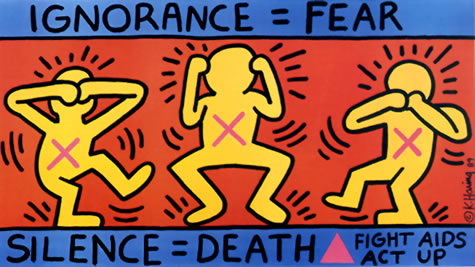According to a recent round of Gallop polls, our representatives in Washington, D.C. have an unprecedented opportunity to execute some important legislation before the end of the year.
Poll number one asked Democrats, Republicans and Independents alike where they stood on stricter background checks for individuals looking to buy a gun. The results were as follows:
83 percent of Democrats said they supported stricter background checks.
81 percent of Republicans voted to support stricter background checks.
80 percent of Independents thought stricter background checks were needed.
On issue number one, 81 percent of all voters polled were in support of stricter background checks, which should send a clear message to Washington that it’s time to pass better legislation regarding how Americans acquire handguns.
Poll number two asked registered voters if they believed that gay and lesbian workers should be protected from discrimination based on sexual preference. The results were as follows:
80 percent of Democrats were against discrimination in the workplace.
75 percent of Independents were against such discrimination, as well.
60 percent of Republicans were on board with equality in the workplace.
On issue number two, 73 percent of all registered voters polled said they opposed discriminating people based on their sexual preference, sending another clear message to our legislators that it’s time to eliminate discrimination in the workplace.
Poll number three asked registered voters if they were in favor of an established path to citizenship for illegal immigrants to America. Even on this heated issue there was considerable agreement on which course of action to take.
86 percent of Democrats were in favor of a path to citizenship.
88 percent of Independents concurred.
86 percent of Republicans (don’t adjust your screen!) agreed.
On issue number three, an overwhelming majority of 87 percent of registered voters polled were in favor of providing a path to citizenship for workers currently living in America illegally.
In our fourth and final poll, registered voters were asked if they favored raising the federal minimum wage to $9 per hour from its current $7.25 per hour.
91 percent of Democrats sad they were in favor of the raise.
76 percent of Independents agreed it is time to raise the minimum wage.
58 percent of Republicans concurred.
Overall, on issue number four, 76 percent of registered voters said they felt it was time to raise the federal minimum wage, and agreed to the $9 per hour figure.
In a true representative government, the next steps would be fairly straightforward. We elect people to go to Washington and make sure that our best interests are represented by passing laws that reflect those interests. Whether or not you agree with the four issues represented in the polls above, you can’t argue that the American people are unsure about those four issues. An overwhelming majority opinion is clear in all four cases, which means that there is a mandate to have all four issues passed into law.
It won’t surprise anyone who pays much attention to politics to learn that not a single one of these issues is likely to be addressed any time soon, and certainly not before the end of the year. If recent history holds, any version of these laws that might actually get through Congress would likely be so watered down as to be completely ineffective anyway.
What we have in Washington is an “us against them” mentality that pervades the entire operation of government. We have one small minority of one of the major parties that is currently dictating the agenda for that party, which is inexcusable. Party leadership should be held accountable by its membership and thrown out in favor of someone who can unite the party. That person must then make it his or her business to work with members of the opposition party to craft compromises that allow important legislation to pass into law.
This is not government.
It is certainly not representative government.
Whatever the reason, be it the corruption of our political system by the corporations that truly rule the world, or just an unwillingness for one of our two political parties to silence their backward-thinking minority and participate in governance, America's system of government simply doesn't work.
An outsider looking at America as a model of democracy would have to conclude that it is an ineffective system of government in a society where greed is the ultimate driving force. Money and special interests simply drown out the voices of the governed.
Poll number one asked Democrats, Republicans and Independents alike where they stood on stricter background checks for individuals looking to buy a gun. The results were as follows:
83 percent of Democrats said they supported stricter background checks.
81 percent of Republicans voted to support stricter background checks.
80 percent of Independents thought stricter background checks were needed.
On issue number one, 81 percent of all voters polled were in support of stricter background checks, which should send a clear message to Washington that it’s time to pass better legislation regarding how Americans acquire handguns.
Poll number two asked registered voters if they believed that gay and lesbian workers should be protected from discrimination based on sexual preference. The results were as follows:
80 percent of Democrats were against discrimination in the workplace.
75 percent of Independents were against such discrimination, as well.
60 percent of Republicans were on board with equality in the workplace.
On issue number two, 73 percent of all registered voters polled said they opposed discriminating people based on their sexual preference, sending another clear message to our legislators that it’s time to eliminate discrimination in the workplace.
Poll number three asked registered voters if they were in favor of an established path to citizenship for illegal immigrants to America. Even on this heated issue there was considerable agreement on which course of action to take.
86 percent of Democrats were in favor of a path to citizenship.
88 percent of Independents concurred.
86 percent of Republicans (don’t adjust your screen!) agreed.
On issue number three, an overwhelming majority of 87 percent of registered voters polled were in favor of providing a path to citizenship for workers currently living in America illegally.
In our fourth and final poll, registered voters were asked if they favored raising the federal minimum wage to $9 per hour from its current $7.25 per hour.
91 percent of Democrats sad they were in favor of the raise.
76 percent of Independents agreed it is time to raise the minimum wage.
58 percent of Republicans concurred.
Overall, on issue number four, 76 percent of registered voters said they felt it was time to raise the federal minimum wage, and agreed to the $9 per hour figure.
In a true representative government, the next steps would be fairly straightforward. We elect people to go to Washington and make sure that our best interests are represented by passing laws that reflect those interests. Whether or not you agree with the four issues represented in the polls above, you can’t argue that the American people are unsure about those four issues. An overwhelming majority opinion is clear in all four cases, which means that there is a mandate to have all four issues passed into law.
It won’t surprise anyone who pays much attention to politics to learn that not a single one of these issues is likely to be addressed any time soon, and certainly not before the end of the year. If recent history holds, any version of these laws that might actually get through Congress would likely be so watered down as to be completely ineffective anyway.
What we have in Washington is an “us against them” mentality that pervades the entire operation of government. We have one small minority of one of the major parties that is currently dictating the agenda for that party, which is inexcusable. Party leadership should be held accountable by its membership and thrown out in favor of someone who can unite the party. That person must then make it his or her business to work with members of the opposition party to craft compromises that allow important legislation to pass into law.
This is not government.
It is certainly not representative government.
Whatever the reason, be it the corruption of our political system by the corporations that truly rule the world, or just an unwillingness for one of our two political parties to silence their backward-thinking minority and participate in governance, America's system of government simply doesn't work.
An outsider looking at America as a model of democracy would have to conclude that it is an ineffective system of government in a society where greed is the ultimate driving force. Money and special interests simply drown out the voices of the governed.


























